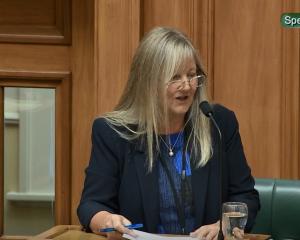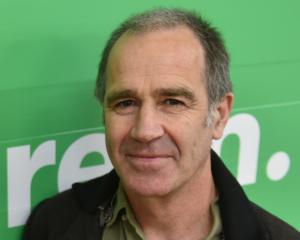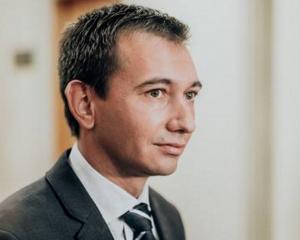Mr Key announced yesterday the election would be held on November 26, nearly five weeks after the October 23 final of the World Cup at Eden Park.
Even without the All Blacks winning the cup, it was estimated the six-week long tournament would inject $700 million directly into the economy, before the multiplier effect from the cup-servicing industries was taken into account.
Mr Key, who holds a commanding lead in the preferred prime minister polls, said he believed it was in the country's best interests to know the date of the general election early.
"It creates certainty for New Zealanders and allows people to plan accordingly. This is particularly true this year when the Rugby World Cup, the third-largest sporting event in the world, is being hosted by New Zealand."
It was the Government's intention for the House to rise on October 6 and Parliament be dissolved on October 20.
Writ day would follow on October 26 and nomination day would be November 1.
Given the timing of the World Cup final, it is likely major political parties will launch their campaigns on October 30 to give a four-week campaign.
It will not all be plain sailing to another election win for Mr Key, who has already ruled out a coalition with New Zealand First leader Winston Peters.
Mr Key has placed his political future on the line by asking for a mandate to partially sell four state-owned energy companies and reduce the Government's holding in Air New Zealand.
The cash gained from the sale - between $2.4 billion and $4.8 billion - would be used to reduce debt.
Already, Opposition parties and trade unions are planning to use National's sell-down policy as an election lightning rod.
The economic recovery has been slow to take hold in New Zealand, although the country's accounts are said to be in better shape than many others.
But Finance Minister Bill English last week likened New Zealand to Portugal, Ireland, Italy, Greece and Spain, which must have been a shock to some.
Inflation is likely to peak at 5.1% in June before reducing as last October's increase in GST is passed through the economy.
Still, 5.1% inflation when wage and salaries are expected to rise less than 2% will be used against the Government.
The extended 90-day trial period for all employers is due to start on April 1, and unions will rally against that law.
The Government is also under fire for its handling of early childhood education funding, even though the funding has risen substantially under National.
Mr Key is in a far better position than Labour leader Phil Goff when it comes to party renewal.
Already, several MPs have either gone or have indicated they will go before the election.
Although Mr Key ruled out a major reshuffle before the next election, when asked by the Otago Daily Times, he indicated he will use some of the more promising MPs widely in the election campaign.
Mr Goff said Labour was ready for an election campaign but some doubts remain about how ready the party is to take on a cash-rich National Party.
Insiders said yesterday that while most Labour candidates had been selected, the party was struggling to attract corporate sponsorship - a reflection of the downturn in the economy.
Donations were still coming in for the party, but at a reduced level to that of previous years.
Former president Mike Williams was a self-made businessman while current president Andrew Little is the national secretary of the Engineering, Printing and Manufacturing Union.
Some businesses will be reluctant to give money to a party led by a prominent union official.
Mr Goff also faces the prospect of telling some long-serving front bench MPs they need to slip quietly into the back bench to make way for some of the new faces of Labour.
Wellington Central MP, Grant Robertson, formerly of Dunedin, is being picked to replace health spokeswoman Ruth Dyson.
Others who may get promoted include Kelvin Davis, Jacinda Ardern and Stuart Nash.
Mr Goff said Labour would campaign on the issues affecting New Zealanders most.
"We know that people are worried about the soaring cost of living with prices rising much faster than wages. That will be a key issue this election."












